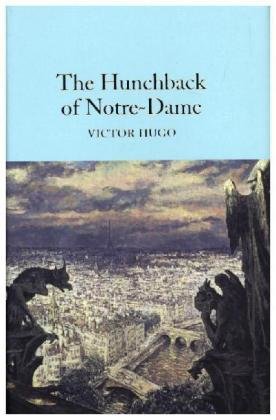Rejected by fifteenth-century Parisian society, the hideously deformed bell-ringer Quasimodo believes he is safe under the watchful eye of his master, the Archdeacon Claude Frollo. But after Quasimodo saves the beautiful Romani girl Esmeralda from the gallows and brings her to sanctuary in the cathedral, he and Frollo's mutual desire for her puts them increasingly at odds, before compassion and cruelty clash with tragic results.
An emotionally stirring story, Victor Hugo's The Hunchback of Notre-Dame is rightfully considered to be one of the finest novels ever written, and this beautiful edition, featuring an afterword by John Grant, is the perfect way to experience this unforgettable tale.
Designed to appeal to the booklover, the Macmillan Collector's Library is a series of beautiful gift editions of much loved classic titles. Macmillan Collector's Library are books to love and treasure.


